When you use chemical pesticides to control ants (Formicidae), you potentially contribute to groundwater contamination and harm bees, butterflies and other beneficial insects. Instead, try these homemade methods to control garden and household ants. They are safer for you, your family, your pets and the environment.

Contents
Why is it NOT practical to exterminate ants?
Exterminating the ant population may not be the best option for your garden, even if you use organic home remedies like the ones we cover here.
Instead, you can choose to keep ants out of your living spaces with natural ant repellents. Some home remedies for REPELLING ants are:
- Essential oils such as tea tree oil, peppermint oil, or cinnamon oil
- cayenne pepper or black pepper
All you have to do is spray or spread one of these substances where you don’t want the ants to bother you.
Why is it better to repel ants in some cases?
The presence of ants in the lawn can be beneficial for the soil and the plants. Ants aerate the soil, carry plant matter underground to enrich the soil, and feed on other insects that want to eat your plants.
So, before exterminating the entire colony of ants living in your garden, weigh the pros and cons of leaving them alone and doing their thing.
If repelling methods don’t work and your ant problem is unbearable, it might be time to consider the recipes we’ve outlined in this article.
Ways to deal with garden and house ants
All the substances we recommend do not come directly from nature, but they are all much safer than chemical insecticides and do not contribute to water pollution, they are safe and effective when it comes to fighting against garden and household ants.
1. Baking soda or baby powder
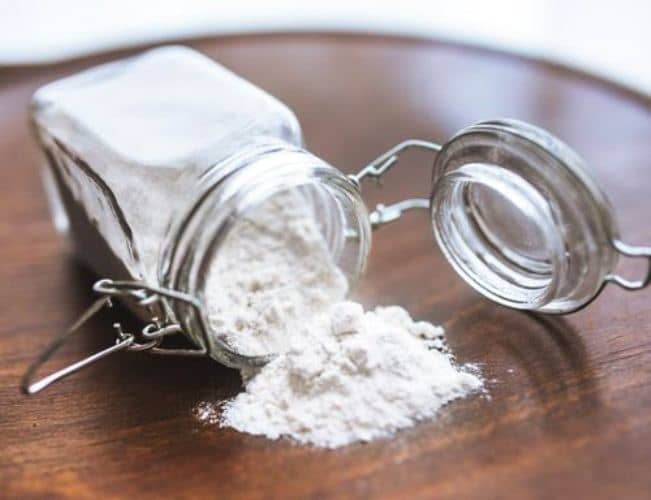
Baking soda and baby powder suffocate ants by clogging their spiracles, which are pores in their exoskeleton that they need to breathe. If ingested, the baking soda will create a chemical reaction inside the ant that will kill it.
What to do:
Sprinkle baking soda or baby powder inside, around the nest, along the ants’ paths, and anywhere you’ve seen them.
Create a barrier around outdoor spaces, potential entry points into your home, and indoor power sources. Ants can cross the barrier, but should die soon after.
For more widespread control, mix equal parts baking soda and powdered sugar to create an ant bait.
The ants will be attracted to the sugar and eat it, then bring it back to the nest for the other ants to eat as well. They ingest the baking soda with the sugar and die.
2. Soapy water
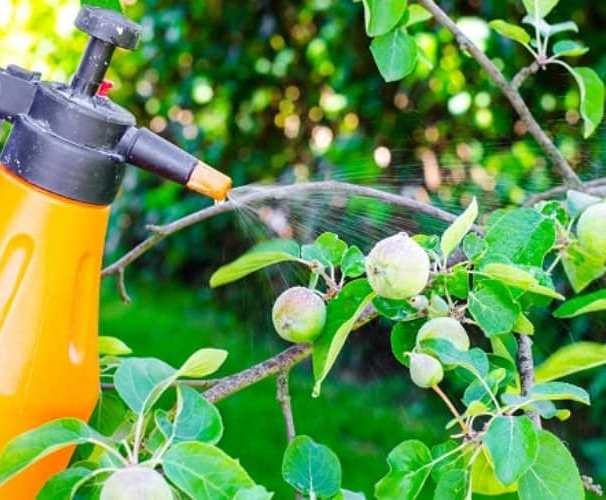
The soap breaks down the ants’ cell membranes and destroys the protective wax coating that keeps them from losing water and dehydrating to death. If you add oil, it will clog the ants’ spiracles (which they need to breathe) and suffocate them.
What to do:
Mix 1 tablespoon of liquid dish soap or ¼ cup of Castile soap for every quart of water. You can add canola oil, olive oil, or vegetable oil to make the mixture even more effective.
Spray the soapy water directly on any ants you see outside the nest to kill them on contact.
Pour the solution over ant hills in your garden (or indoor ant nests, if possible) to kill any ants left underground.
Repeat spraying and pouring solution as needed. Soapy water only kills ants it comes into direct contact with and has no lasting residual effects.
Cons: Soap can harm some plants, so care should be taken when applying it to lawns and gardens.
3. Artificial sweeteners
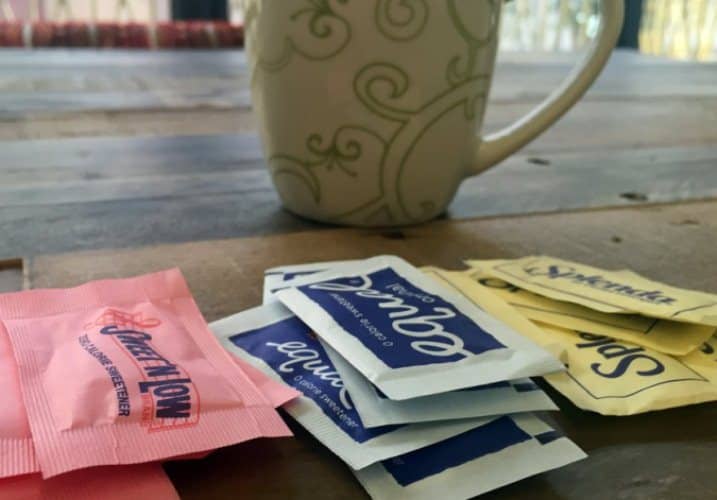
Artificial sweeteners like Splenda, Nutrasweet and Equal contain saccharin or aspartame, which act as neurotoxins in ants.
What to do:
Mix the artificial sweetener with a tablespoon of milk, apple juice, or another sweet liquid that helps attract ants.
Leave the mixture in a dish where ants are likely to find it, such as next to the anthill or wherever you’ve seen them congregate. For best results, place these baits in multiple locations.
Leave the baits alone and don’t kill the ants that come and go. Let the ants take the bait back to the nest, where the remaining ants underground (and hopefully the queen) will eat it.
4. Borax/boric acid
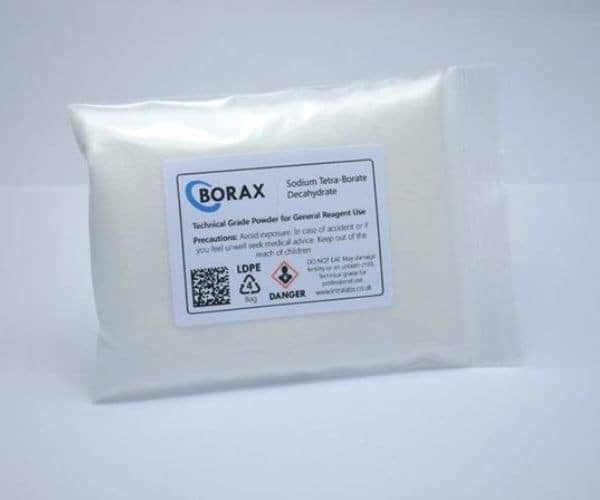
Borax is a powder made up of boron, oxygen and sodium. Boric acid is essentially a more processed version of borax. Both contain boron as their main ingredient and kill ants by upsetting their digestive system when ingested.
What to do:
To create ant bait, combine borax or boric acid with foods that attract ants. If possible, prepare several baits, some with solid foods (like sugar) and some with liquid foods (like syrup).
Place several baits in different places where you have seen ants, indoors or outdoors. Potential locations could be next to an anthill, in the middle of an ant trail, or near a food source.
Don’t kill ants when you see them swarming on the bait. Let them carry the food (and the borax or boric acid) back to their nest, where even more ants will eat it.
Disadvantages: Borax and boric acid are toxic to people and pets if inhaled or swallowed.
They can cause irritation if they touch you directly, so wear gloves and safety glasses when preparing and setting bait. Direct contact with borax or boric acid also damages plants.
5. Diatomaceous earth (DE)
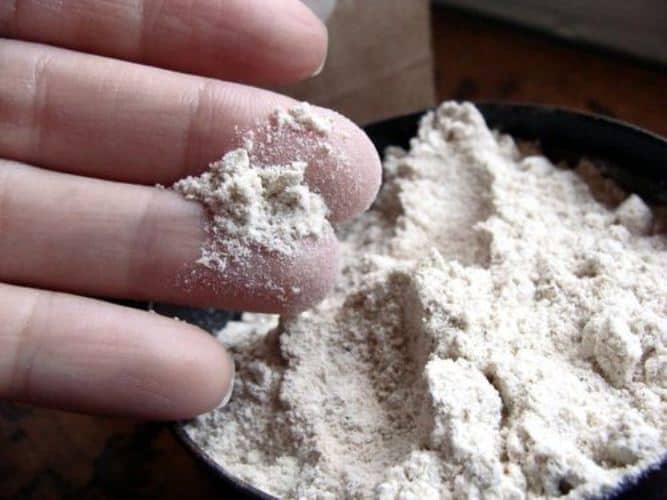
How it works: Diatomaceous earth (DE) is made up of tiny fossils left behind by microscopic organisms called diatoms.
These fossils are too small to harm humans, but they are deadly to ants. Diatomaceous earth particles penetrate the exoskeleton of ants, dehydrating them and eventually killing them.
How to use diatomaceous earth
Buy food-grade (non-industrial) diatomaceous earth. It looks powdery and usually comes in a bag. You can find it at most garden centers.
Sprinkle the powder around ant hills, ant trails, and anywhere you’ve seen them congregate.
Also, do this in a perimeter around patios, walkways, and other high-traffic areas of your yard to prevent ants from invading your space.
If you already have ants indoors, sprinkle DE powder around your pantry and sink where ants are most likely to find a food source.
Replace whenever the area gets wet. That is, after every rain and every time you water.
Attention: It is recommended to wear a dust mask and safety glasses when applying DE.
Home Remedies That Don’t Work For Garden And House Ants
Although many home remedies are effective against ants, some do not work as well. Here are a few we don’t recommend:
Corn flour: Cornmeal attracts ants and can be used in baits with another natural ant killer, but there is no evidence that cornmeal alone kills ants.
Cornstarch: Like cornmeal, you can use cornstarch to attract ants, but it won’t kill them.
Neem oil: Neem oil is used to kill aphids, which some ants “bring” as a food source, but not the ants themselves. But removing the aphids won’t necessarily kill the associated ants.
Share it on the networks: